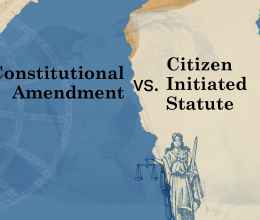Facts
The defendant-appellant, Kelly Foreman, gave birth in a hospital in Seneca County in March of 2018. A toxicology screen conducted shortly afterwards revealed cocaine metabolites (the ensuing substances after cocaine is metabolized) in her umbilical cord, as well as in the newborn’s urine and meconium (the first stool after birth). Ms. Foreman was questioned by a social worker and admitted to having used cocaine throughout her pregnancy. Defendant did not, however, say where she had used cocaine, nor was any other evidence offered by county prosecutors to establish where she may have possessed or used cocaine. She was charged with felony possession of cocaine, and convicted after a bench trial in Seneca County in 2019.
Legal Theory
Under the prohibitions against cruel and unusual punishment in the Eighth Amendment and Article I § 9 of the Ohio Constitution, it is unlawful to prosecute a person for the status or condition of being a “drug user.” Instead, prosecution must be for the commission of a specific act. Here, the prosecution only demonstrated the presence of cocaine and/or metabolites inside the defendant or her newborn’s body; it was not shown beyond a reasonable doubt that she “possessed” cocaine in Seneca County. Effectively, by convicting her without a showing that she committed any act in Seneca County, the lower court penalized her mere status of being a person who used cocaine at some point, in violation of the constitutional principle that one may not be penalized for one’s status. This case also presents disturbing public policy implications for physician-patient relationships; if the mere presence of metabolites is all that is required to establish drug “possession,” then under existing law, physicians could be required to report patients to law enforcement upon detection of metabolites in routine toxicology screens.
Status Update
Ms. Foreman’s 2018 conviction was upheld by the Third Appellate District Court on June 1, 2020. She appealed to the Ohio Supreme Court on July 16. We filed our amicus brief in support of her appeal on December 14. On February 2 the State filed its merit brief. The Ohio Prosecuting Attorneys Association also filed an amicus brief, in support of the state, on February 2. Ms. Foreman’s reply brief was filed February 22. Oral argument was held on May 12. Appellants’ counsel shared time with us. On September 30, the Ohio Supreme Court found unanimously for Ms. Foreman, ruling that the presence of drug metabolites in the body is insufficient to establish possession of said drug.








